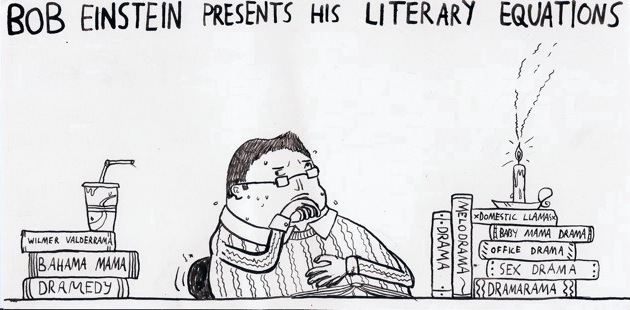The essence of which is as follows, to wit:
The young writer is called upon, in other words, through work and craft and persistence, to take the raw talent he or she has, and force it into some deep, dark corners. . . to try to wrest from "mere" talent a kind of iconic originality...to confront the parts of himself or herself that, in the early days of a career, one thinks can be ignored, or overcome, or hidden under a mattress somewhere. [emphasis mine]This is, to me, especially with respect to the latter portion I italicized, what the task of the writer is. Whereas Nietzsche once wrote, "Poets are shameless with their experiences: they exploit them," I think Saunders' analysis is much more on the mark, perhaps in part because it is less cynical, certainly, but I think it needs to be said there is a reconciliation the writer faces, which requires that he or she be willing to put him or herself on display, at least in a certain sense. It is not as simple as mining one's experiences for the gems, in other words. It is not a process of picking and choosing what to exploit by its designated value; you need the sum total. The grit between the gems is vitally important, too, if not more so. Because who wants to admit to all the crap that's gone wrong? The failures fill the voids, though; the hardships teach us more about living than happiness ever could. Schopenhauer 101. There is in effect a price to be paid by all of us, the writer just uses the grit under the mattress, exposes what's under the rug, too. The writer is in the "open wounds" business, which takes its toll.
These things about oneself that Saunders refers to are not a priori true necessarily, then. I think that ought to be made clear. Certainly I'd say I fall into the camp of people who believe in both nature and nurture, that the two terms are most definitely not mutually exclusive. So while experience might not determine every consideration relevant to what Saunders describes, e.g. you may have deeply felt insecurities borne of the humors apportioned unequally at birth and with which you need to come to terms, experience more often than not dictates one's emotional maturity, and the deeper impression those experiences added up have left, which examples include an abusive home life in youth, a profoundly felt death, or severe illness of one form or another, sometimes a little of both, and much more, too, because the gamut extends quite far.
It's these aspects of our character that we, if we are to be writers, must reconcile and present to the world, for rejection or acceptance, which is another of the challenges posed by not holding anything back, as it raises the stakes, stakes whose outcome is never entirely determinable by our own actions. Offering up your work to others and their judgment is a risky proposition, for as Nietzsche also says (in one of my favorite of his aphorisms), "Having a talent is not enough: we also need your permission to have it -- don't you think so? my good friends?" (Note: this is also a good example of the humor of Nietzsche, which he had a sense of, which is kind of surprising, although it's as dry and mordant as you might rightly expect.) All that we can control is as Saunders says, "The essential thing is having a talent for having talent." Waitaminute, that's pretty much beyond anyone's ability to manipulate through hard work or "control" too, "talent for having talent"? -- well, good luck.
Also, concerning what Saunders wrote in Guernica regarding the writer's craft, there is much more in the complete article than just what I quoted, and which I think is definitely worth your while, so please follow the link embedded above if you feel inclined.








